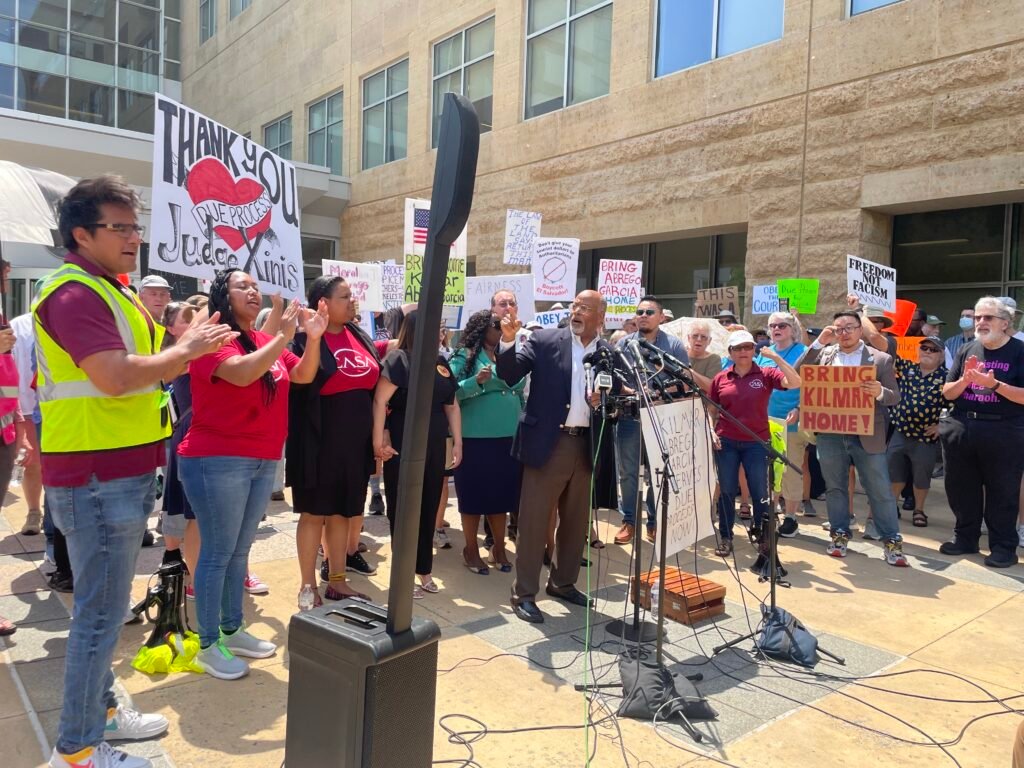DC Bureau
Federal Judge Reveals New Evidence in Abrego Garcia Case

WASHINGTON — A Maryland federal judge lifted the veil on documents related to the case of Kilmar Abrego Garcia, who was wrongly deported, unsealing them on Wednesday despite the Trump administration’s attempt to invoke state secrets privilege.
U.S. District Judge Paula Xinis ruled that three documents did not contain privileged information, challenging the administration’s extensive use of this privilege in a recent hearing. The unsealing was prompted by a coalition of news organizations advocating for First Amendment rights and public access to court records.
In her ruling, Xinis emphasized the public’s presumptive right to access court documents unless outweighed by significant competing interests. President Trump has previously stated that Abrego Garcia, removed in March over an administrative mistake, will not be allowed back into the U.S. Government attorneys maintain that he remains in El Salvador, beyond federal authority for repatriation.
Further complicating matters, a separate case involving another deported individual revealed that Secretary of State Marco Rubio was personally involved in attempts to facilitate the return of a 20-year-old, referred to as “Cristian” in court documents.
Some documents made public on Wednesday had initially been accessible before the Trump administration sealed them. One notable unsealed document contained details from an April discovery request by Abrego Garcia’s attorneys, seeking information on how the government was handling the man’s return from El Salvador. While the U.S. Supreme Court mandated that the administration facilitate this return, it did not impose strict requirements.
Another document concerned a request from the Trump administration for an extension in discovery proceedings. Judge Xinis agreed that the unsealed records did not reveal sensitive information that could justify the state secrets claim.
A partially redacted document raised concerns about the administration’s request to delay discovery. Attorney Jonathan G. Cooper, representing Abrego Garcia, argued that the production of documents should not interfere with efforts to facilitate his client’s return.
Lastly, a transcript from a late April hearing will be redacted and released only after the case concludes, as aspects of it touch on the administration’s claimed state secrets privilege concerning Secretary Rubio and the State Department.


















